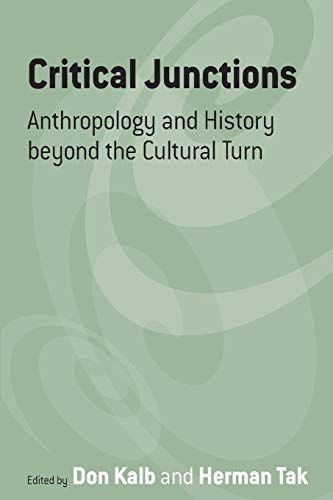
Critical Junctions Anthropology and History Beyond the Cultural Turn
"A book about theory and method in the humanities and social sciences. It reacts to what has become known as the "cultural turn," a shift toward semiotics, discourse, and representations and away from other sorts of determinations that started in the early 1980s and that has dominated social thinking for a long string of years. The book is based in a reconsideration of the meeting of two disciplines that helped to launch the cultural turn: anthropology and history. Specifically, it criticizes the ideas of hermeneutics and "thick description" (Clifford Geertz) that have come to play a key role in the encounter of anthropology and history and then in the cultural turn. It led to the renewed cherishing of what Gupta and Ferguson have called paradigms of "peoples and places," saturated pictures of universes, both small and large, of meaning ina more of less frozen standstill-an intellectual precursor to the cultural xenophobia of our times. Against this, the present book embraces praxis and "critical junctions": the connections in space (in and out of a relations of power and dependency, and what Eric Wolf has called the "interstitial relations" between apparently separate institutional domains. In this way the book adds to the current revival of institutionally based "global ethnography," which studies "up and outward" (the journal of Ethnography is a good example)."-- Preface.